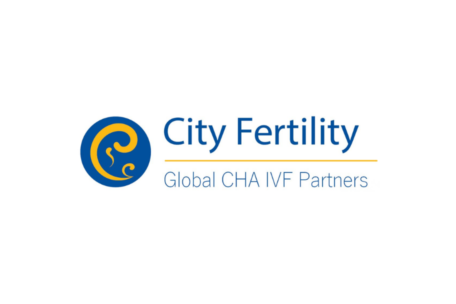Module Aims
- Underline what infertility is and highlight the fact that 1 in 6 Australian couples and individuals experience it.
- Clarify when you should seek medical advice when you are trying to conceive, including indicators that early treatment should be sought.
- Describe the wide range of fertility options available within City Fertility and their national network that may suit your individual needs and circumstances, and how to get started on your parenthood journey.
What is infertility?
Infertility is defined as one year of unsuccessful conception for women under 35, and this declines to six months of unsuccessful conception for women over 35.
Experiencing infertility can be extremely challenging and it’s important to know that you are not alone.
In fact, 1 in 6 Australian couples of reproductive age encounter infertility. Whether there is a known reason that is preventing conception or the cause of infertility is still being explored, there are fertility treatment options to assist you on your journey to parenthood.
There is no single cause of infertility, however, research has found that 30% of cases are caused by female factors, 30% are from male factors, another 30% are from both partners and the remaining 10% are caused by unknown factors.
Whether you are trying to conceive or merely exploring your options, there is a myriad of treatments available for those dealing with infertility.
When should you seek medical advice?
If you have not achieved a pregnancy after a year (or six months if you are over 35) of unprotected intercourse, you should seek medical advice from your GP or a specialist.
For women aged 40 and over, it would be recommended that further investigations be initiated after three months of trying to fall pregnant as female age is one of the most important predictors of whether pregnancy will be achieved.
Other indicators that early treatment should be sought include:
Female
- Irregular menstrual cycles or absent periods.
- A diagnosis of polycystic ovarian syndrome (PCOS).
- A diagnosis of endometriosis.
- A history suggestive of tubal damage, recurrent miscarriage, genetic conditions or family history of premature menopause.
Male
- Poor sperm morphology (abnormally shaped), poor motility (slow-moving), and low sperm count.
- Presence of antisperm antibodies.
- Ejaculatory problems or azoospermia (no sperm present).
- Alternative to male sterilisation reversal.
What fertility treatment options are available?
While infertility can be a challenging experience for you and your partner, the good news is that it can be treated.
Several medical conditions can be treated with assisted reproductive technology (ART).
Some treatment options include:
Fertility health check
If you have had investigations ordered by your GP, it is important to make it known to your specialist before the first consultation so that these can be accessed. Most of these do not need to be repeated. Some tests are ordered to ensure you are ready for pregnancy, while others assess the specific cause of your fertility problem.
These tests may include:
Female fertility tests
- Common blood tests include follicular phase (early cycle) sex hormones (estrogen, luteinising hormone (LH), follicle-stimulating hormone (FSH) and thyroid-stimulating hormone).
- There is another blood test that predicts ovarian reserve, called the anti-Mullerian hormone (AMH), which is often done with an antral follicle count (AFC), via an ultrasound scan. AMH is a hormone produced by ovarian follicles that contain eggs. The level of AMH gives an indication of the ovarian activity in a month, or the number of eggs being produced (ovarian reserve).
- A pelvic ultrasound scan is performed to check the pelvic anatomy and exclude ovarian cysts. A hysterosalpingogram (HSG) is an X-ray dye study that will check the uterine cavity and exclude blockage of the fallopian tubes. This can also be done with a saline sonohysterogram, which is a specialised type of ultrasound scan.
Male fertility tests
- A “sperm count” is also known as a seminal fluid (semen) analysis. It looks at sperm concentration, motility (ability to swim) and morphology (shape). This test is generally referred to as a semen analysis.
- An abnormal blood count may require blood tests such as FSH, LH and testosterone.
- Depending on your history and the results of the initial tests, your treating doctor may request a sperm DNA fragmentation test or a testicular biopsy. For more information about these tests, please visit our page on the sperm test and semen analysis.
Ovulation induction (OI)
Ovulation Induction (OI) is a fertility treatment that uses medications to cause or regulate ovulation or increase the number of eggs produced during a cycle, to increase the opportunity for pregnancy.
To learn more about Ovulation Induction, click here.
Intrauterine Insemination (IUI)
Intrauterine Insemination (IUI) is a fertility procedure in which prepared sperm (washed sperm) is inserted into a woman’s uterus directly, to improve the chances of conceiving.
- This procedure involves the use of sperm that is either fresh (from the partner) or frozen (from the partner or a donor).
Recently, City Fertility was proud to launch InSEM Fertility Solutions, a fully dedicated Intrauterine Insemination (IUI) clinic in Australia. · At InSEM, you have the option to have the insemination procedure performed by our experienced team at the InSEM clinic, or you can choose to do it in the comfort and privacy of your own home with the InSEM Kit.
- With InSEM, the process is simple & affordable with donor sperm available now – each procedure takes only 15-20 min. To learn more about Intrauterine Insemination, visit click here.
In Vitro Fertilisation (IVF)
IVF literally means “fertilisation in glass”. The process involves fertilising the egg with the sperm in an incubator outside the body, then transferring the best embryo back into the woman’s uterus in the hope of achieving a pregnancy.
To learn more about the IVF process, click here.
Intracytoplasmic Sperm Injection (ICSI)
Intracytoplasmic Sperm Injection (ICSI) is a specialised form of In Vitro Fertilisation (IVF) that is used primarily for the treatment of severe cases of male-factor infertility. ICSI involves the injection of a single sperm directly into a mature egg.
To learn more about the ICSI process, click here.
How to get started
The first step towards accessing fertility treatment is booking an appointment with a fertility specialist. During your initial consultation, your fertility specialist will be able to give you a personalised assessment and discuss the different options available to you, considering your individual needs and circumstances.
If you are interested in learning more about the fertility treatment options available, we encourage you to check out our partners, City Fertility and its national network. Established in 2003, City Fertility is one of Australia’s leading IVF & fertility service groups with 14 clinics, over 70 consulting rooms and over 60 fertility specialists nationwide. City Fertility provides seamless care across the full fertility spectrum while ensuring the best possible outcome for their patients.
They also have a dedicated LGBTI+ fertility service (Rainbow Fertility), egg freezing service (Chill Egg Freeze) and low-cost option (First Step Fertility) that may better suit your individual needs.

City Fertility
City Fertility is among Australia’s leading IVF & fertility service groups with 14 clinics and more than 60 specialists nationwide.
City Fertility aims to redefine what patients can expect in terms of fertility and IVF care through their state-of-the-art facilities, expert medical team, and exceptional patient care.
Their partnership with CHA Medical Group (CHA) and Singapore Medical Group (SMG) also offers City Fertility access to world-class, pioneering solutions and treatment through access to top global fertility research and development.
To learn more about City Fertility and how they can assist you, visit www.cityfertility.com.au.

Rainbow Fertility
Rainbow Fertility is Australia’s first dedicated LGBTI+ fertility provider. We welcome and cater specifically to the needs of LGBTI+ Australians.
Rainbow Fertility specialises in offering inclusive world-class fertility and IVF care to people of all sexes, genders, and sexualities to realise their dream of building a family.
They understand families can come in all shapes and sizes and are passionate that everybody deserves to have the opportunity to become a parent.
To learn more about Rainbow Fertility and the services offered, visit www.rainbowfertility.com.au.

Chill Egg Freeze
Chill Egg Freeze is Australia’s dedicated egg freeze service provider that empowers women regarding their future fertility options.
Whether you wish to focus on your career, study further, wait until you have found the right person, or simply are just not ready to start a family yet; elective egg freezing gives you the option to preserve your fertility to build a family when the time is right.
Elective egg freezing is also an option for birth-designated females who are medically transitioning from female to male but still want to maintain the option of becoming a biological parent.
For more information about how Chill Egg Freeze can assist you, visit www.chilleggfreeze.com.au.
All of their friendly teams will be able to offer you insight and advice to help you achieve your goals. Book an appointment with one of their fertility specialists to get started on your journey today.
Summary
- 1 in 6 couples and individuals experience infertility with approximately 30% of cases due to female factors, 30% of male factors, 30% combined and 10% unexplained.
- There are many fertility options available to suit your individual circumstances, needs, and goals.
- Contact City Fertility to learn more about the fertility treatments available and select the option that best suits you.

